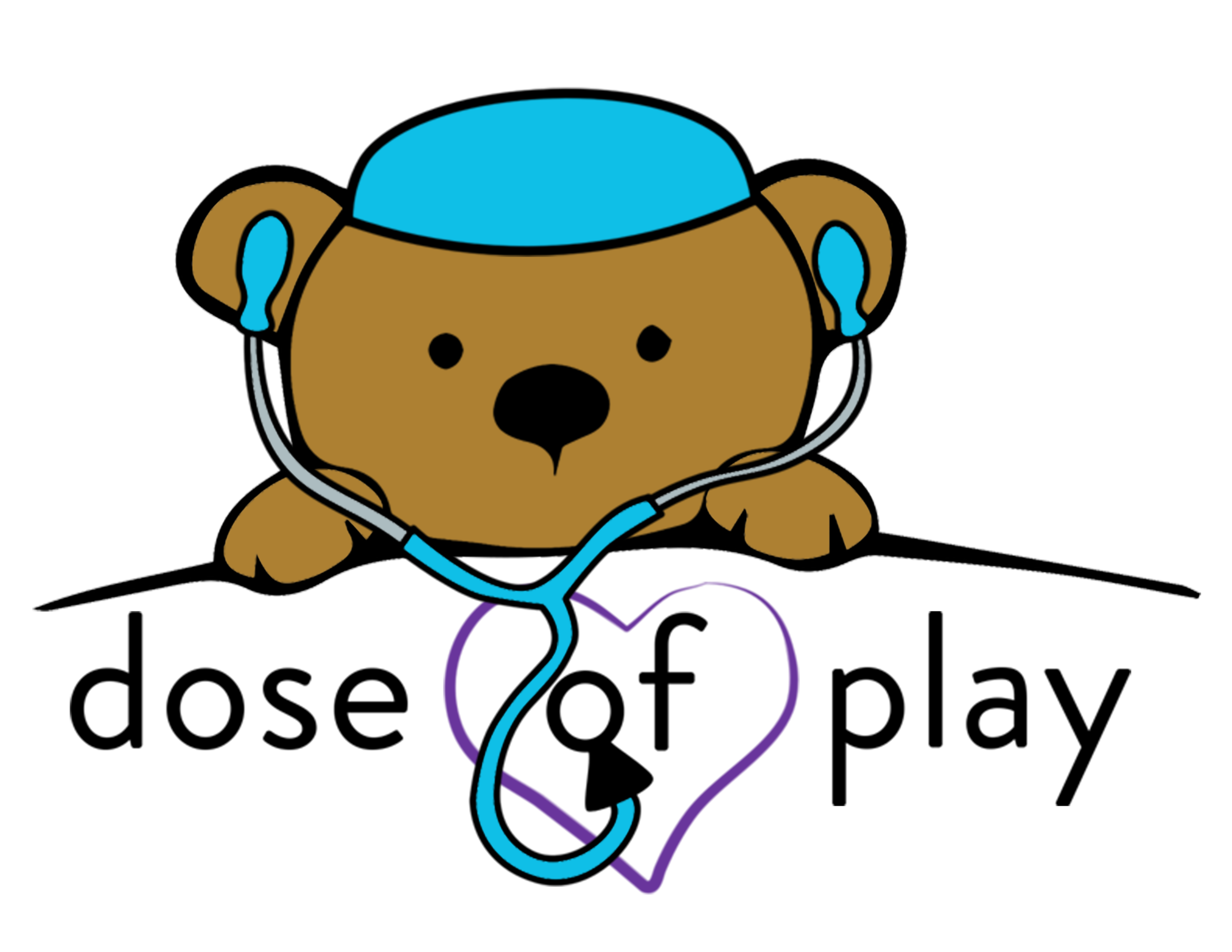Hospital Hacks!
When a child is in the hospital, life is disrupted. Inside those hospital walls, procedures, sounds of medical equipment, and more can impact sleep, play, and normal routines.
As a child life specialist, I had the honor of making connections with countless families who have shared what their hospital stressors had been. Many are unique to their family or situation, but so many the same. Over the years, I’ve heard great tips and witnessed clever hacks that have helped ease the stress of hospitalization and made their stays more manageable. Often, it's the smallest of things that made their experience easier - one less straw on the camel’s back makes a dramatic impact on the child or family’s hospital experience. I have been grateful for the opportunity to pay it forward sharing these tips and hospital hacks with families overtime and now I'm excited to share them with you!
For Sleep
Eye masks to block out: lights in the room turning on with nursing assessments and care treatments, lights seeping in from the hallway when staff enter and exit, siren lights from outside.
Ear plugs to sound out: machines beeping, chatter from hallways, babies crying, medical assessments and care.
Mattress pad: aside from concern for their child, the #1 complaint from parents to me about being hospitalized was the unsatisfactory sleeping situation. Either the hospital didn't have beds/couches for parents or the pull out couches were highly unsatisfactory. I saw a few savvy parents of children with chronic illnesses who had enough of the overnight discomfort and invested in mattress pads, extra blankets, and even some that brought air mattresses!
White noise machine. Not just for the littles! I've used YouTube white noise videos in a pinch, but unfortunately you can't really use your phone for anything else while thats in use.
Lavender essential oil. Place a couple of drops on a cotton ball and inhale with deep slow breaths. Store in a closed container and do your research about which companies you can trust - ones that prove they test the purity of the oils. Please speak with nursing before attempting to bring in your personal oil diffuser, as children and staff may have sensitivities to particular scents and oil being diffused, in general. Some hospitals have policies prohibiting them. Another great idea is the scented plush.
Door sign. A whole lot of people come in and out of a child's room when hospitalized. Not only medical staff, but psychosocial support specialists and clinicians, food service, cleaning staff, volunteers, and visitors. Talk to your child's nurse. If it's disrupting sleep or coping, it might be appropriate for you to make a simple sign to ask visitors to check in with the nurse before knocking on the door/entering at designated times.
Que up your favorite relaxation playlist or download some relaxation apps. I am most familiar with and like Relax Melodies.
When we really listen to a child or family, we can stay inspired daily to use our skills and experience to creatively foster coping for an individual child or family. Below are just a few of my favorite tips and hacks related to play from parents, medical professionals, and child life specialists.
For Play
Bring a pack and play for a change of scenery for babies or toddlers that are confined to their room due to infection control.
Secure iPad to the adjustable TVs (seen in ICU rooms) with opaque hospital tape. For critically ill children, calming imagery or music can be played, they can watch their favorite shows and movies (YouTube clips), or a person can "play for the child" using an app the child is known to love.
Use safe, non-critical medical items and other miscellaneous recycled items for dramatic play, games and art making to allow child control and to process their experience.
Tape board games like Candyland to the adjustable ICU TVs for children critically ill, but still able and desiring to play! Instead of using the board pieces, each player uses a different colored dry-erase marker to mark the spot on the board. One version has the spinner as an alternative to the deck of cards, which can give a child a greater sense of control and a bit of "hands on" play with as little as movement from a finger required. Offer assistance as needed.
Create your own medical themed card deck for the Headbanz game to familiarize children with medical equipment or health care professionals they meet in the hospital. Read more about my idea here. You can also see how I create the cards in this post.
Do you have any hospital hacks to share? Comment below! Stay tuned for more in Hospital Hacks - Part Two
~Sharing is caring ~


